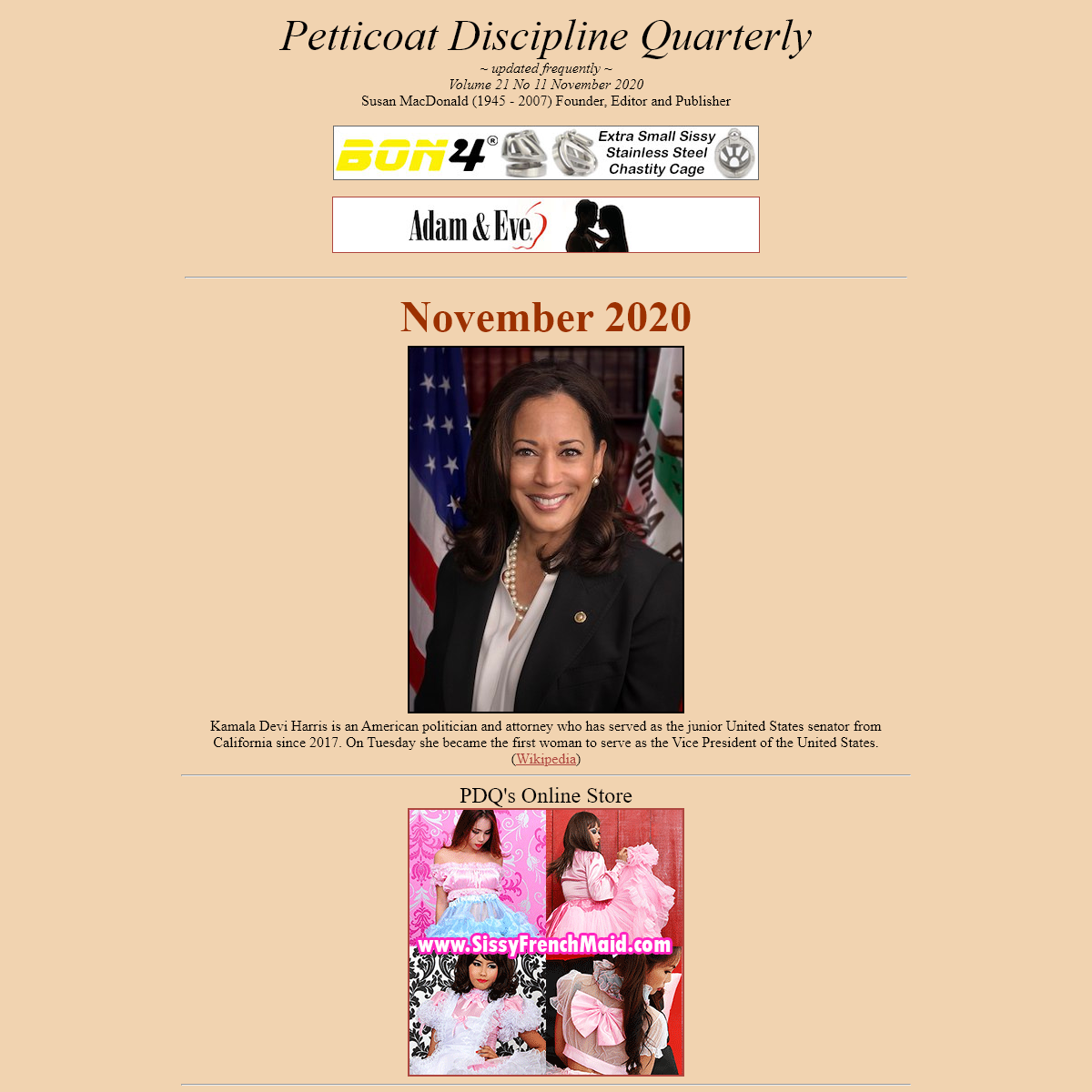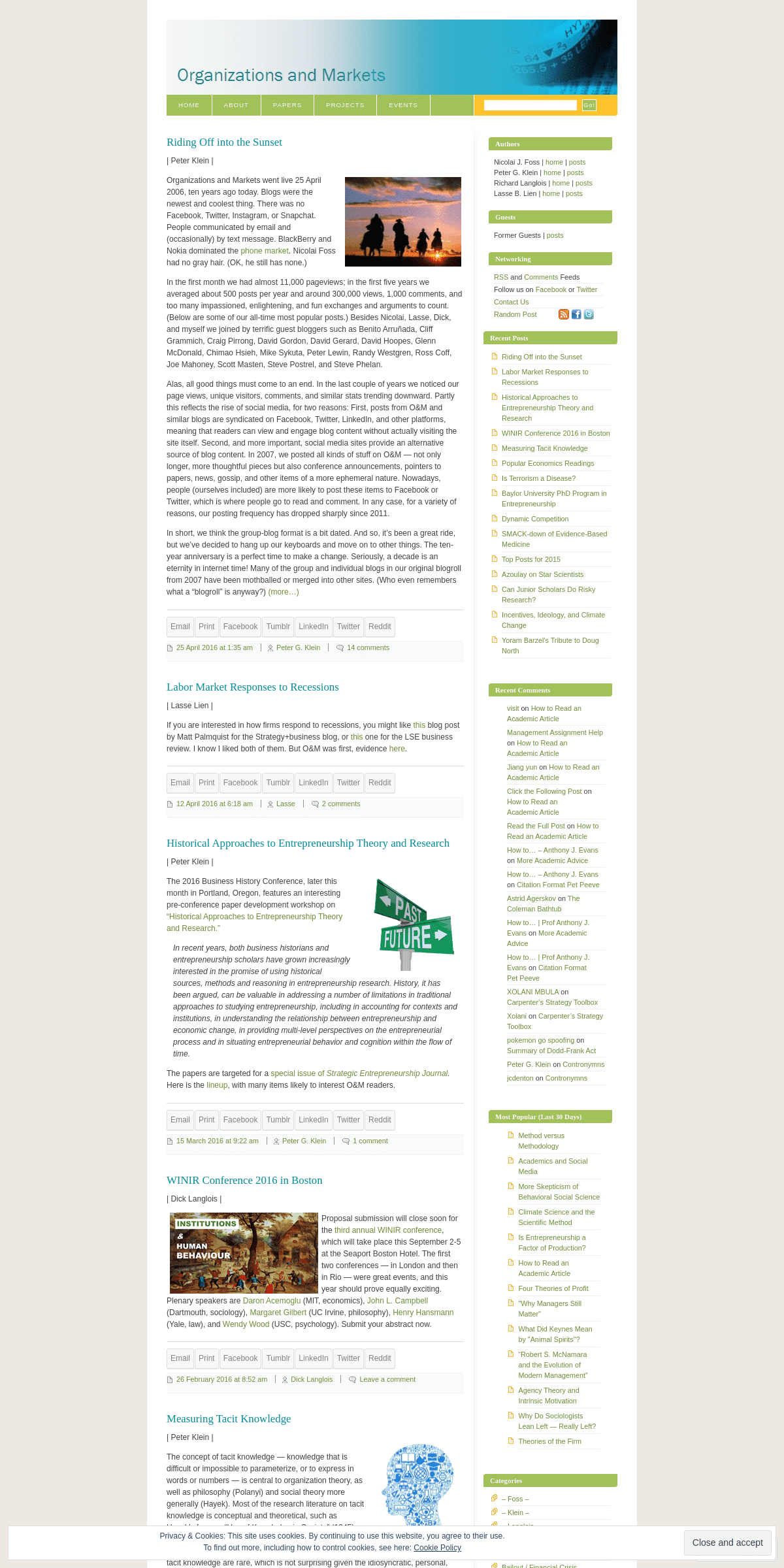Are you over 18 and want to see adult content?
More Annotations

A complete backup of dirtyhomeclips.com
Are you over 18 and want to see adult content?

A complete backup of sonovinhasbr.com
Are you over 18 and want to see adult content?

A complete backup of webcamsdolls.com
Are you over 18 and want to see adult content?

A complete backup of www.www.petticoated.com
Are you over 18 and want to see adult content?

A complete backup of www.www.millionairematch.com
Are you over 18 and want to see adult content?

A complete backup of fluffychicks.net
Are you over 18 and want to see adult content?

A complete backup of www.tastyblacks.com
Are you over 18 and want to see adult content?

A complete backup of www.www.enature.tv
Are you over 18 and want to see adult content?
Favourite Annotations

A complete backup of https://uitvaart.nl
Are you over 18 and want to see adult content?

A complete backup of https://makananbaby.com
Are you over 18 and want to see adult content?

A complete backup of https://greendiscoverylaos.com
Are you over 18 and want to see adult content?

A complete backup of https://vitaminwell.com
Are you over 18 and want to see adult content?

A complete backup of https://exfan.org
Are you over 18 and want to see adult content?

A complete backup of https://muse-themes.com
Are you over 18 and want to see adult content?

A complete backup of https://niwa.org
Are you over 18 and want to see adult content?

A complete backup of https://facecast.net
Are you over 18 and want to see adult content?

A complete backup of https://shemale.bg
Are you over 18 and want to see adult content?

A complete backup of https://honeyflow.com
Are you over 18 and want to see adult content?

A complete backup of https://hair-and-makeup-artist.com
Are you over 18 and want to see adult content?
Text
article.
WHAT ARE HYBRID FORMS AND HOW CAN THEY BE MODELEDAUTHOR: NICOLAI FOSS Forms that are intermediate in this sense do exist — as witness joint ventures –, but most hybrid forms do not fall neatly in the middle in terms of the relevant dimensions. They are market-like on some dimensions and hierarchy-like on other dimensions. The problem is how to model this more complex picture of hybrids. MEASURING TACIT KNOWLEDGE Measuring Tacit Knowledge. The concept of tacit knowledge — knowledge that is difficult or impossible to parameterize, or to express in words or numbers — is central to organization theory, as well as philosophy (Polanyi) and social theory more generally (Hayek). Most of the research literature on tacit knowledge is conceptual and THE REVERSE PELTZMAN EFFECT Nicolai J. Foss and Peter G. Klein, Organizing Entrepreneurial Judgment: A New Approach to the Firm (Cambridge University Press, 2012). Peter G. Klein and Micheal E. Sykuta, eds., The Elgar Companion to Transaction Cost Economics (Edward Elgar, 2010). Peter G. Klein, The Capitalist and the Entrepreneur: Essays on Organizations and Markets (Mises Institute, 2010). AGENCY THEORY AND INTRINSIC MOTIVATION Agency Theory and Intrinsic Motivation. 20 November 2007 at 8:00 am Nicolai Foss 12 comments | Nicolai Foss | Agency theory represents one of the most influential and controversial bodies of microeconomics. To some, it is an extraordinarily powerful theory that can be applied in all sorts of ways and provides the theoretical foundation for the understanding of reward systems, many “ROBERT S. MCNAMARA AND THE EVOLUTION OF MODERN MANAGEMENT “Robert S. McNamara and the Evolution of Modern Management” 13 December 2010 at 10:25 am Peter G. Klein 3 comments | Peter Klein | That’s the title of a new HBR article by Phil Rosenzweig (author of the excellent Halo Effect).I’ve been interested in McNamara and his role in business history since grad school, when I was researching “management by the numbers” and similar FOUR THEORIES OF PROFIT | Lasse Lien | The word equilibrium should perhaps be used sparingly here in this Austrian stronghold. Nevertheless, I shall dare to use it once or twice below. One of the biggest buzzes at the recent Academy of Management meeting in Atlanta was Richard Makadok's paper, "Four Theories of Profit and Their Interaction." Makadok's main JEWISH ECONOMIC THEORY Jewish Economic Theory. Five principles of Jewish economic theory, as described in Judaism, Markets, and Capitalism: Separating Myths from Reality by Corinne Sauer and Robert M. Sauer (forthcoming from the Acton Institute): Work, creative activity, and innovation are the avenues through which the divine image is expressed. WHAT JOB INSTABILITY? | Peter Klein | A truism among management scholars is that jobs, in the new, knowledge-based, hypercompetitive, deregulated, entrepreneurial, dog-eat-dog, Schumpeterian, long-tail economy, have become less secure. Perhaps my father or grandfather spent his career with a single firm and got a gold watch upon retirement but I constantly switch jobs, by choice or necessity, ADAM SMITH AND THE CORPORATION Adam Smith and the Corporation. 12 July 2007 at 10:22 am Peter G. Klein 4 comments | Peter Klein | Larry Elliott writes in the Guardian that Adam Smith would oppose the modern shareholder model of the corporation. Smith, he argues, “would have looked askance at an economy gripped by speculative fever, with the emphasis not on making things but on buying and selling, making a turn, HOW TO READ AN ACADEMIC ARTICLE How to Read an Academic Article. Caveat: no single style works for everyone! Klein’s basic steps for skimming, scanning, processing. Read the abstract (if provided) Read the introduction. Read the conclusion. Skim the middle, looking at section titles, tables, figures, etc.—try to get a feel for the style and flow of thearticle.
WHAT ARE HYBRID FORMS AND HOW CAN THEY BE MODELEDAUTHOR: NICOLAI FOSS Forms that are intermediate in this sense do exist — as witness joint ventures –, but most hybrid forms do not fall neatly in the middle in terms of the relevant dimensions. They are market-like on some dimensions and hierarchy-like on other dimensions. The problem is how to model this more complex picture of hybrids. MEASURING TACIT KNOWLEDGE Measuring Tacit Knowledge. The concept of tacit knowledge — knowledge that is difficult or impossible to parameterize, or to express in words or numbers — is central to organization theory, as well as philosophy (Polanyi) and social theory more generally (Hayek). Most of the research literature on tacit knowledge is conceptual and THE REVERSE PELTZMAN EFFECT Nicolai J. Foss and Peter G. Klein, Organizing Entrepreneurial Judgment: A New Approach to the Firm (Cambridge University Press, 2012). Peter G. Klein and Micheal E. Sykuta, eds., The Elgar Companion to Transaction Cost Economics (Edward Elgar, 2010). Peter G. Klein, The Capitalist and the Entrepreneur: Essays on Organizations and Markets (Mises Institute, 2010). AGENCY THEORY AND INTRINSIC MOTIVATION Agency Theory and Intrinsic Motivation. 20 November 2007 at 8:00 am Nicolai Foss 12 comments | Nicolai Foss | Agency theory represents one of the most influential and controversial bodies of microeconomics. To some, it is an extraordinarily powerful theory that can be applied in all sorts of ways and provides the theoretical foundation for the understanding of reward systems, many “ROBERT S. MCNAMARA AND THE EVOLUTION OF MODERN MANAGEMENT “Robert S. McNamara and the Evolution of Modern Management” 13 December 2010 at 10:25 am Peter G. Klein 3 comments | Peter Klein | That’s the title of a new HBR article by Phil Rosenzweig (author of the excellent Halo Effect).I’ve been interested in McNamara and his role in business history since grad school, when I was researching “management by the numbers” and similar FOUR THEORIES OF PROFIT | Lasse Lien | The word equilibrium should perhaps be used sparingly here in this Austrian stronghold. Nevertheless, I shall dare to use it once or twice below. One of the biggest buzzes at the recent Academy of Management meeting in Atlanta was Richard Makadok's paper, "Four Theories of Profit and Their Interaction." Makadok's main JEWISH ECONOMIC THEORY Jewish Economic Theory. Five principles of Jewish economic theory, as described in Judaism, Markets, and Capitalism: Separating Myths from Reality by Corinne Sauer and Robert M. Sauer (forthcoming from the Acton Institute): Work, creative activity, and innovation are the avenues through which the divine image is expressed. WHAT JOB INSTABILITY? | Peter Klein | A truism among management scholars is that jobs, in the new, knowledge-based, hypercompetitive, deregulated, entrepreneurial, dog-eat-dog, Schumpeterian, long-tail economy, have become less secure. Perhaps my father or grandfather spent his career with a single firm and got a gold watch upon retirement but I constantly switch jobs, by choice or necessity, ADAM SMITH AND THE CORPORATION Adam Smith and the Corporation. 12 July 2007 at 10:22 am Peter G. Klein 4 comments | Peter Klein | Larry Elliott writes in the Guardian that Adam Smith would oppose the modern shareholder model of the corporation. Smith, he argues, “would have looked askance at an economy gripped by speculative fever, with the emphasis not on making things but on buying and selling, making a turn, MEASURING TACIT KNOWLEDGE Measuring Tacit Knowledge. 2 February 2016 at 5:21 pm Peter G. Klein 2 comments | Peter Klein | The concept of tacit knowledge — knowledge that is difficult or impossible to parameterize, or to express in words or numbers — is central to organization theory, as well as philosophy (Polanyi) and social theory more generally (Hayek). PERCEPTIONS OF OPPORTUNITIES Perceptions of Opportunities – Part 1. 23 January 2012 at 3:38 pm Peter Lewin 18 comments | Peter Lewin | The January 2012 issue of the AMR (available here for subscribers or those with academic access) features two review articles assessing the progress of the “Promise” examined in the well-known article by Scott Shane and Sankaran Venkataraman (AMR 2000: The Promise of TOP FOUR IMPLICATIONS FOR COMPETITIVE ADVANATAGE | Lasse Lien | I recently blogged my top-three list of consequences of the financial crisis for firm boundaries. Here is my top-four list of consequences for competitive advantage. They are to be read as broad-stroke changes on the margin, and with a ceteris paribus clause. 1. Valuable: Kind of obvious, but cost-based advantages increase in FOUR THEORIES OF PROFIT | Lasse Lien | The word equilibrium should perhaps be used sparingly here in this Austrian stronghold. Nevertheless, I shall dare to use it once or twice below. One of the biggest buzzes at the recent Academy of Management meeting in Atlanta was Richard Makadok's paper, "Four Theories of Profit and Their Interaction." Makadok's main THE ORGANIZATIONAL ECONOMICS OF THE BP OIL SPILL The Organizational Economics of the BP Oil Spill. Now that passions are cooling regarding the BP disaster, it’s time to bring organizational issues into the discussion. 1. Everyone knows about the liability caps and the role they may have played in encouraging moral hazard. Just as bank deposits are guaranteed by government depositinsurance
THE ORIGINAL CORPORATE RAIDER The Original Corporate Raider. 3 February 2008 at 5:50 pm Peter G. Klein 2 comments | Peter Klein | Did you catch Henry Manne’s tribute to Louis E. Wolfson, whom Manne calls “the original corporate raider,” in the 18 Jan WSJ? he obituaries dutifully acknowledged that he was a serious and valued benefactor of children’s health care, and that he devoted himself in later life to the DEATON’S CRITIQUE OF RANDOMIZED CONTROLLED TRIALS Deaton’s Critique of Randomized Controlled Trials. 12 October 2015 at 9:40 pm Peter G. Klein 2 comments | Peter Klein | Because we’ve been somewhat skeptical of randomized-controlled trials — not the technique itself, but the way it is over-hyped by its proponents — you may enjoy Angus Deaton’s critique of RCTs in development economics. I learned of Deaton’s arguments from this FORMAL ECONOMIC THEORY: BEAUTIFUL BUT USELESS Formal Economic Theory: Beautiful but Useless? Greg Mankiw, reflecting on the "poetry" of Paul Romer's growth theory, offers this assessment of modern, mathematical, neoclassical economic theory: "Too much of it is beautiful but useless." Let's leave beauty in the eye of the beholder, for now, and focus on the second part of Mankiw'sdescription.
GULF & WESTERN AND THE MOB Gulf & Western and the Mob. 14 May 2011 at 11:21 pm Peter G. Klein 4 comments | Peter Klein | As a fan of the Godfather films, and a student of conglomerate diversification in the 1960s and 1970s, I’m surprised that I didn’t know, until today, about the connections between Gulf & Western CEO Charles Bluhdorn and the mafia.Paramount, the studio that made Godfather I and II, was at that time WHY ARE THE DUTCH SO CLEAN? Why Are the Dutch So Clean? Folk wisdom holds that people stopped bathing after the fall of the Roman Empire. Thus, it is commonly held that all of Europe was, until recently, quite smelly indeed. Some hold the view that this is still the case. There were serious exceptions,of course.
MEASURING TACIT KNOWLEDGE Measuring Tacit Knowledge. The concept of tacit knowledge — knowledge that is difficult or impossible to parameterize, or to express in words or numbers — is central to organization theory, as well as philosophy (Polanyi) and social theory more generally (Hayek). Most of the research literature on tacit knowledge is conceptual and WHAT ARE HYBRID FORMS AND HOW CAN THEY BE MODELEDAUTHOR: NICOLAI FOSS Forms that are intermediate in this sense do exist — as witness joint ventures –, but most hybrid forms do not fall neatly in the middle in terms of the relevant dimensions. They are market-like on some dimensions and hierarchy-like on other dimensions. The problem is how to model this more complex picture of hybrids. AGENCY THEORY AND INTRINSIC MOTIVATION Agency Theory and Intrinsic Motivation. 20 November 2007 at 8:00 am Nicolai Foss 12 comments | Nicolai Foss | Agency theory represents one of the most influential and controversial bodies of microeconomics. To some, it is an extraordinarily powerful theory that can be applied in all sorts of ways and provides the theoretical foundation for the understanding of reward systems, many THE REVERSE PELTZMAN EFFECT Nicolai J. Foss and Peter G. Klein, Organizing Entrepreneurial Judgment: A New Approach to the Firm (Cambridge University Press, 2012). Peter G. Klein and Micheal E. Sykuta, eds., The Elgar Companion to Transaction Cost Economics (Edward Elgar, 2010). Peter G. Klein, The Capitalist and the Entrepreneur: Essays on Organizations and Markets (Mises Institute, 2010). MARCH & SIMON: EARLY SOCIALIST CALCULATION REVISIONISTS March & Simon: Early Socialist Calculation Revisionists. It is now commonly recognized that the majority of the economics profession for about four decades held an erroneous view of the nature of the “socialist calculation debate.”. In particular, the nature of the arguments put forward by Mises and Hayek were misconstrued. TOP FOUR IMPLICATIONS FOR COMPETITIVE ADVANATAGE | Lasse Lien | I recently blogged my top-three list of consequences of the financial crisis for firm boundaries. Here is my top-four list of consequences for competitive advantage. They are to be read as broad-stroke changes on the margin, and with a ceteris paribus clause. 1. Valuable: Kind of obvious, but cost-based advantages increase in “ROBERT S. MCNAMARA AND THE EVOLUTION OF MODERN MANAGEMENT “Robert S. McNamara and the Evolution of Modern Management” 13 December 2010 at 10:25 am Peter G. Klein 3 comments | Peter Klein | That’s the title of a new HBR article by Phil Rosenzweig (author of the excellent Halo Effect).I’ve been interested in McNamara and his role in business history since grad school, when I was researching “management by the numbers” and similar WHAT DO UNIVERSITIES PRODUCE? What Do Universities Produce? 24 July 2011 at 1:34 pm Peter Lewin 18 comments | Peter Lewin | Naomi Riley’s new book on university tenure is creating a bit of a stir. It is of a kind with a number of similar works reflecting growing unease about the traditional arrangements inacademe.
JEWISH ECONOMIC THEORY Jewish Economic Theory. Five principles of Jewish economic theory, as described in Judaism, Markets, and Capitalism: Separating Myths from Reality by Corinne Sauer and Robert M. Sauer (forthcoming from the Acton Institute): Work, creative activity, and innovation are the avenues through which the divine image is expressed. ADAM SMITH AND THE CORPORATION Adam Smith and the Corporation. 12 July 2007 at 10:22 am Peter G. Klein 4 comments | Peter Klein | Larry Elliott writes in the Guardian that Adam Smith would oppose the modern shareholder model of the corporation. Smith, he argues, “would have looked askance at an economy gripped by speculative fever, with the emphasis not on making things but on buying and selling, making a turn, MEASURING TACIT KNOWLEDGE Measuring Tacit Knowledge. The concept of tacit knowledge — knowledge that is difficult or impossible to parameterize, or to express in words or numbers — is central to organization theory, as well as philosophy (Polanyi) and social theory more generally (Hayek). Most of the research literature on tacit knowledge is conceptual and WHAT ARE HYBRID FORMS AND HOW CAN THEY BE MODELEDAUTHOR: NICOLAI FOSS Forms that are intermediate in this sense do exist — as witness joint ventures –, but most hybrid forms do not fall neatly in the middle in terms of the relevant dimensions. They are market-like on some dimensions and hierarchy-like on other dimensions. The problem is how to model this more complex picture of hybrids. AGENCY THEORY AND INTRINSIC MOTIVATION Agency Theory and Intrinsic Motivation. 20 November 2007 at 8:00 am Nicolai Foss 12 comments | Nicolai Foss | Agency theory represents one of the most influential and controversial bodies of microeconomics. To some, it is an extraordinarily powerful theory that can be applied in all sorts of ways and provides the theoretical foundation for the understanding of reward systems, many THE REVERSE PELTZMAN EFFECT Nicolai J. Foss and Peter G. Klein, Organizing Entrepreneurial Judgment: A New Approach to the Firm (Cambridge University Press, 2012). Peter G. Klein and Micheal E. Sykuta, eds., The Elgar Companion to Transaction Cost Economics (Edward Elgar, 2010). Peter G. Klein, The Capitalist and the Entrepreneur: Essays on Organizations and Markets (Mises Institute, 2010). MARCH & SIMON: EARLY SOCIALIST CALCULATION REVISIONISTS March & Simon: Early Socialist Calculation Revisionists. It is now commonly recognized that the majority of the economics profession for about four decades held an erroneous view of the nature of the “socialist calculation debate.”. In particular, the nature of the arguments put forward by Mises and Hayek were misconstrued. TOP FOUR IMPLICATIONS FOR COMPETITIVE ADVANATAGE | Lasse Lien | I recently blogged my top-three list of consequences of the financial crisis for firm boundaries. Here is my top-four list of consequences for competitive advantage. They are to be read as broad-stroke changes on the margin, and with a ceteris paribus clause. 1. Valuable: Kind of obvious, but cost-based advantages increase in “ROBERT S. MCNAMARA AND THE EVOLUTION OF MODERN MANAGEMENT “Robert S. McNamara and the Evolution of Modern Management” 13 December 2010 at 10:25 am Peter G. Klein 3 comments | Peter Klein | That’s the title of a new HBR article by Phil Rosenzweig (author of the excellent Halo Effect).I’ve been interested in McNamara and his role in business history since grad school, when I was researching “management by the numbers” and similar WHAT DO UNIVERSITIES PRODUCE? What Do Universities Produce? 24 July 2011 at 1:34 pm Peter Lewin 18 comments | Peter Lewin | Naomi Riley’s new book on university tenure is creating a bit of a stir. It is of a kind with a number of similar works reflecting growing unease about the traditional arrangements inacademe.
JEWISH ECONOMIC THEORY Jewish Economic Theory. Five principles of Jewish economic theory, as described in Judaism, Markets, and Capitalism: Separating Myths from Reality by Corinne Sauer and Robert M. Sauer (forthcoming from the Acton Institute): Work, creative activity, and innovation are the avenues through which the divine image is expressed. ADAM SMITH AND THE CORPORATION Adam Smith and the Corporation. 12 July 2007 at 10:22 am Peter G. Klein 4 comments | Peter Klein | Larry Elliott writes in the Guardian that Adam Smith would oppose the modern shareholder model of the corporation. Smith, he argues, “would have looked askance at an economy gripped by speculative fever, with the emphasis not on making things but on buying and selling, making a turn, ORGANIZATIONS AND MARKETS Popular Economics Readings | Peter Klein | The Open Syllabus Project is a useful repository of course reading lists from almost every academic discipline. (Hey, we had the idea first!) A fun feature is the ability to browse by popularity, i.e., to see the most frequently assigned readings in a particular field.Of course, the sample consists of syllabi posted on public websites, so it may be WHAT ARE HYBRID FORMS AND HOW CAN THEY BE MODELED | Nicolai Foss | Many scholars have argued that hierarchies are increasingly infused by market mechanisms (e.g., here and here), and that elements of authority can increasingly be witnessed in market transactions. This has been referred to as the "swollen middle hypothesis." A major step forward in the understanding of such hybrid governance is Williamson's PERCEPTIONS OF OPPORTUNITIES Perceptions of Opportunities – Part 1. 23 January 2012 at 3:38 pm Peter Lewin 18 comments | Peter Lewin | The January 2012 issue of the AMR (available here for subscribers or those with academic access) features two review articles assessing the progress of the “Promise” examined in the well-known article by Scott Shane and Sankaran Venkataraman (AMR 2000: The Promise of PUBLIC ENTREPRENEURSHIP Public Entrepreneurship. 23 December 2009 at 2:49 pm Peter G. Klein 18 comments | Peter Klein | Joe Mahoney, Anita McGahan, Christos Pitelis, and I have written a paper, “Toward a Theory of Public Entrepreneurship,” exploring the application of concepts, theories, and approaches from the entrepreneurship literature to non-market behavior. We argue that governments, government agencies TOP FOUR IMPLICATIONS FOR COMPETITIVE ADVANATAGE | Lasse Lien | I recently blogged my top-three list of consequences of the financial crisis for firm boundaries. Here is my top-four list of consequences for competitive advantage. They are to be read as broad-stroke changes on the margin, and with a ceteris paribus clause. 1. Valuable: Kind of obvious, but cost-based advantages increase in THE ORGANIZATIONAL ECONOMICS OF THE BP OIL SPILL The Organizational Economics of the BP Oil Spill. Now that passions are cooling regarding the BP disaster, it’s time to bring organizational issues into the discussion. 1. Everyone knows about the liability caps and the role they may have played in encouraging moral hazard. Just as bank deposits are guaranteed by government depositinsurance
ASSESSING THE CRITIQUES OF THE RBV Assessing the Critiques of the RBV. There is little doubt that the resource-based view, in its various guises and manifestations (e.g., see Gavetti & Levinthal’s distinction between “high church” and “low church” approaches to the RBV ), is the dominant perspective in strategic management research. Naturally, all dominant approaches THE ORIGINAL CORPORATE RAIDER The Original Corporate Raider. 3 February 2008 at 5:50 pm Peter G. Klein 2 comments | Peter Klein | Did you catch Henry Manne’s tribute to Louis E. Wolfson, whom Manne calls “the original corporate raider,” in the 18 Jan WSJ? he obituaries dutifully acknowledged that he was a serious and valued benefactor of children’s health care, and that he devoted himself in later life to the GULF & WESTERN AND THE MOB Gulf & Western and the Mob. 14 May 2011 at 11:21 pm Peter G. Klein 4 comments | Peter Klein | As a fan of the Godfather films, and a student of conglomerate diversification in the 1960s and 1970s, I’m surprised that I didn’t know, until today, about the connections between Gulf & Western CEO Charles Bluhdorn and the mafia.Paramount, the studio that made Godfather I and II, was at that time WHY DO SOCIOLOGISTS LEAN LEFT my explanation comes from personal experience with the German university system. I believe, for one part the political affiliation of sociologist toward the left is the result the history of this discipline – for example, sociologists in Germany did have to leave the country when the nazis came to power, not only because of their jewish background but also just because they we occupied with ORGANIZATIONS AND MARKETS Popular Economics Readings | Peter Klein | The Open Syllabus Project is a useful repository of course reading lists from almost every academic discipline. (Hey, we had the idea first!) A fun feature is the ability to browse by popularity, i.e., to see the most frequently assigned readings in a particular field.Of course, the sample consists of syllabi posted on public websites, so it may be ABOUT | ORGANIZATIONS AND MARKETS Organizations and Markets was created in April 2006 by Nicolai J. Foss and Peter G. Klein, professors with research interests spanning organizational economics, strategic management, entrepreneurship, innovation, the economics of institutions, and the history, philosophy, and sociology of science. Foss teaches management at the Copenhagen Business School and Klein teaches economics at the PROJECTS | ORGANIZATIONS AND MARKETS Information about books and other long-term research projects Ongoing projects Teppo Felin and Nicolai J. Foss, untitled book on micro-foundations, under contract with University of Chicago Press Crisis, Change, and Growth project at NHH (in Norwegian) Peter G. Klein and Joseph T. Salerno, price theory text, tentatively titled Fundamentals of Economic Analysis: A Causal-Realist Approach, AGENCY THEORY AND INTRINSIC MOTIVATION Agency Theory and Intrinsic Motivation. 20 November 2007 at 8:00 am Nicolai Foss 12 comments | Nicolai Foss | Agency theory represents one of the most influential and controversial bodies of microeconomics. To some, it is an extraordinarily powerful theory that can be applied in all sorts of ways and provides the theoretical foundation for the understanding of reward systems, many FORMAL ECONOMIC THEORY: BEAUTIFUL BUT USELESS Formal Economic Theory: Beautiful but Useless? Greg Mankiw, reflecting on the "poetry" of Paul Romer's growth theory, offers this assessment of modern, mathematical, neoclassical economic theory: "Too much of it is beautiful but useless." Let's leave beauty in the eye of the beholder, for now, and focus on the second part of Mankiw'sdescription.
MARCH & SIMON: EARLY SOCIALIST CALCULATION REVISIONISTS March & Simon: Early Socialist Calculation Revisionists. It is now commonly recognized that the majority of the economics profession for about four decades held an erroneous view of the nature of the “socialist calculation debate.”. In particular, the nature of the arguments put forward by Mises and Hayek were misconstrued. “ROBERT S. MCNAMARA AND THE EVOLUTION OF MODERN MANAGEMENT “Robert S. McNamara and the Evolution of Modern Management” 13 December 2010 at 10:25 am Peter G. Klein 3 comments | Peter Klein | That’s the title of a new HBR article by Phil Rosenzweig (author of the excellent Halo Effect).I’ve been interested in McNamara and his role in business history since grad school, when I was researching “management by the numbers” and similar WHAT JOB INSTABILITY? | Peter Klein | A truism among management scholars is that jobs, in the new, knowledge-based, hypercompetitive, deregulated, entrepreneurial, dog-eat-dog, Schumpeterian, long-tail economy, have become less secure. Perhaps my father or grandfather spent his career with a single firm and got a gold watch upon retirement but I constantly switch jobs, by choice or necessity, THE ORIGINAL CORPORATE RAIDER The Original Corporate Raider. 3 February 2008 at 5:50 pm Peter G. Klein 2 comments | Peter Klein | Did you catch Henry Manne’s tribute to Louis E. Wolfson, whom Manne calls “the original corporate raider,” in the 18 Jan WSJ? he obituaries dutifully acknowledged that he was a serious and valued benefactor of children’s health care, and that he devoted himself in later life to the ADAM SMITH AND THE CORPORATION Adam Smith and the Corporation. 12 July 2007 at 10:22 am Peter G. Klein 4 comments | Peter Klein | Larry Elliott writes in the Guardian that Adam Smith would oppose the modern shareholder model of the corporation. Smith, he argues, “would have looked askance at an economy gripped by speculative fever, with the emphasis not on making things but on buying and selling, making a turn, ORGANIZATIONS AND MARKETS Popular Economics Readings | Peter Klein | The Open Syllabus Project is a useful repository of course reading lists from almost every academic discipline. (Hey, we had the idea first!) A fun feature is the ability to browse by popularity, i.e., to see the most frequently assigned readings in a particular field.Of course, the sample consists of syllabi posted on public websites, so it may be ABOUT | ORGANIZATIONS AND MARKETS Organizations and Markets was created in April 2006 by Nicolai J. Foss and Peter G. Klein, professors with research interests spanning organizational economics, strategic management, entrepreneurship, innovation, the economics of institutions, and the history, philosophy, and sociology of science. Foss teaches management at the Copenhagen Business School and Klein teaches economics at the PROJECTS | ORGANIZATIONS AND MARKETS Information about books and other long-term research projects Ongoing projects Teppo Felin and Nicolai J. Foss, untitled book on micro-foundations, under contract with University of Chicago Press Crisis, Change, and Growth project at NHH (in Norwegian) Peter G. Klein and Joseph T. Salerno, price theory text, tentatively titled Fundamentals of Economic Analysis: A Causal-Realist Approach, AGENCY THEORY AND INTRINSIC MOTIVATION Agency Theory and Intrinsic Motivation. 20 November 2007 at 8:00 am Nicolai Foss 12 comments | Nicolai Foss | Agency theory represents one of the most influential and controversial bodies of microeconomics. To some, it is an extraordinarily powerful theory that can be applied in all sorts of ways and provides the theoretical foundation for the understanding of reward systems, many FORMAL ECONOMIC THEORY: BEAUTIFUL BUT USELESS Formal Economic Theory: Beautiful but Useless? Greg Mankiw, reflecting on the "poetry" of Paul Romer's growth theory, offers this assessment of modern, mathematical, neoclassical economic theory: "Too much of it is beautiful but useless." Let's leave beauty in the eye of the beholder, for now, and focus on the second part of Mankiw'sdescription.
MARCH & SIMON: EARLY SOCIALIST CALCULATION REVISIONISTS March & Simon: Early Socialist Calculation Revisionists. It is now commonly recognized that the majority of the economics profession for about four decades held an erroneous view of the nature of the “socialist calculation debate.”. In particular, the nature of the arguments put forward by Mises and Hayek were misconstrued. “ROBERT S. MCNAMARA AND THE EVOLUTION OF MODERN MANAGEMENT “Robert S. McNamara and the Evolution of Modern Management” 13 December 2010 at 10:25 am Peter G. Klein 3 comments | Peter Klein | That’s the title of a new HBR article by Phil Rosenzweig (author of the excellent Halo Effect).I’ve been interested in McNamara and his role in business history since grad school, when I was researching “management by the numbers” and similar WHAT JOB INSTABILITY? | Peter Klein | A truism among management scholars is that jobs, in the new, knowledge-based, hypercompetitive, deregulated, entrepreneurial, dog-eat-dog, Schumpeterian, long-tail economy, have become less secure. Perhaps my father or grandfather spent his career with a single firm and got a gold watch upon retirement but I constantly switch jobs, by choice or necessity, THE ORIGINAL CORPORATE RAIDER The Original Corporate Raider. 3 February 2008 at 5:50 pm Peter G. Klein 2 comments | Peter Klein | Did you catch Henry Manne’s tribute to Louis E. Wolfson, whom Manne calls “the original corporate raider,” in the 18 Jan WSJ? he obituaries dutifully acknowledged that he was a serious and valued benefactor of children’s health care, and that he devoted himself in later life to the ADAM SMITH AND THE CORPORATION Adam Smith and the Corporation. 12 July 2007 at 10:22 am Peter G. Klein 4 comments | Peter Klein | Larry Elliott writes in the Guardian that Adam Smith would oppose the modern shareholder model of the corporation. Smith, he argues, “would have looked askance at an economy gripped by speculative fever, with the emphasis not on making things but on buying and selling, making a turn, PROJECTS | ORGANIZATIONS AND MARKETS Information about books and other long-term research projects Ongoing projects Teppo Felin and Nicolai J. Foss, untitled book on micro-foundations, under contract with University of Chicago Press Crisis, Change, and Growth project at NHH (in Norwegian) Peter G. Klein and Joseph T. Salerno, price theory text, tentatively titled Fundamentals of Economic Analysis: A Causal-Realist Approach, ABOUT | ORGANIZATIONS AND MARKETS Organizations and Markets was created in April 2006 by Nicolai J. Foss and Peter G. Klein, professors with research interests spanning organizational economics, strategic management, entrepreneurship, innovation, the economics of institutions, and the history, philosophy, and sociology of science. Foss teaches management at the Copenhagen Business School and Klein teaches economics at the PAPERS | ORGANIZATIONS AND MARKETS Papers. Recent Working Papers. Harvey S. James, Jr., Peter G. Klein, and Michael E. Sykuta, “The Adoption, Diffusion, and Evolution of Organizational Form: Insights from the Agrifood Sector” (revised December 2010), Managerial and Decision Economics, forthcoming Lasse B. Lien and Peter G. Klein, “Can the Survivor Principle Survive Diversification?” (revised November 2010). EVENTS | ORGANIZATIONS AND MARKETS Upcoming Events of Interest Austrian Economics Research Conference Auburn, Ala., 12-14 March 2015 SMS Special Conference, "From Local Voids to Local Goods: Can Institutions Promote Competitive Advantage?" Santiago, 19-21 March 2015 “Research and Policy Change Inspired by Ronald Coase” Washington DC, 27-28 March 2015 Berkeley-Paris Organizational Economics Workshop Paris,PETER G. KLEIN
Popular Economics Readings | Peter Klein | The Open Syllabus Project is a useful repository of course reading lists from almost every academic discipline. (Hey, we had the idea first!) A fun feature is the ability to browse by popularity, i.e., to see the most frequently assigned readings in a particular field.Of course, the sample consists of syllabi posted on public websites, so it may be 21 ECONOMIC MODELS EXPLAINED 21 Economic Models Explained. 25 February 2009 at 3:04 pm Lasse 48 comments | Lasse Lien | In celebration of Mahoney and Pitelis’s impressive achievement in strategic management, here is a related classic on economic systems (HT: K. Isrenn): 21 Economic ModelsExplained
WHAT ARE HYBRID FORMS AND HOW CAN THEY BE MODELED Forms that are intermediate in this sense do exist — as witness joint ventures –, but most hybrid forms do not fall neatly in the middle in terms of the relevant dimensions. They are market-like on some dimensions and hierarchy-like on other dimensions. The problem is how to model this more complex picture of hybrids. MEASURING TACIT KNOWLEDGE Measuring Tacit Knowledge. The concept of tacit knowledge — knowledge that is difficult or impossible to parameterize, or to express in words or numbers — is central to organization theory, as well as philosophy (Polanyi) and social theory more generally (Hayek). Most of the research literature on tacit knowledge is conceptual and AGENCY THEORY AND INTRINSIC MOTIVATION Agency Theory and Intrinsic Motivation. 20 November 2007 at 8:00 am Nicolai Foss 12 comments | Nicolai Foss | Agency theory represents one of the most influential and controversial bodies of microeconomics. To some, it is an extraordinarily powerful theory that can be applied in all sorts of ways and provides the theoretical foundation for the understanding of reward systems, many BEHAVIORAL AGENCY THEORY In contrast, behavioral agency theory is a bouillabaise of very different ingredients that are linked to the standard theory in a somewhat ad hoc manner. The authors position and motivate the paper in terms of gaining more insight into executive compensation, but of course the scope of behavioral agency theory is much broader. ORGANIZATIONS AND MARKETS* Home
* About
* Papers
* Projects
* Events
------------------------- RIDING OFF INTO THE SUNSET| Peter Klein |
Organizations and
Markets went live 25 April 2006, ten years ago today. Blogs were the newest and coolest thing. There was no Facebook, Twitter, Instagram, or Snapchat. People communicated by email and (occasionally) by text message. BlackBerry and Nokia dominated the phone market. Nicolai Foss
had no gray hair. (OK, he still has none.) In the first month we had almost 11,000 pageviews; in the first five years we averaged about 500 posts per year and around 300,000 views, 1,000 comments, and too many impassioned, enlightening, and fun exchanges and arguments to count. (Below are some of our all-time most popular posts.) Besides Nicolai, Lasse, Dick, and myself we joined by terrific guest bloggers such as Benito Arruñada, Cliff Grammich, Craig Pirrong, David Gordon, David Gerard, David Hoopes, Glenn McDonald, Chimao Hsieh, Mike Sykuta, Peter Lewin, Randy Westgren, Ross Coff, Joe Mahoney, Scott Masten, Steve Postrel, andSteve Phelan.
Alas, all good things must come to an end. In the last couple of years we noticed our page views, unique visitors, comments, and similar stats trending downward. Partly this reflects the rise of social media, for two reasons: First, posts from O&M and similar blogs are syndicated on Facebook, Twitter, LinkedIn, and other platforms, meaning that readers can view and engage blog content without actually visiting the site itself. Second, and more important, social media sites provide an alternative source of blog content. In 2007, we posted all kinds of stuff on O&M — not only longer, more thoughtful pieces but also conference announcements, pointers to papers, news, gossip, and other items of a more ephemeral nature. Nowadays, people (ourselves included) are more likely to post these items to Facebook or Twitter, which is where people go to read and comment. In any case, for a variety of reasons, our posting frequency has dropped sharplysince 2011.
In short, we think the group-blog format is a bit dated. And so, it’s been a great ride, but we’ve decided to hang up our keyboards and move on to other things. The ten-year anniversary is a perfect time to make a change. Seriously, a decade is an eternity in internet time! Many of the group and individual blogs in our original blogroll from 2007 have been mothballed or merged into other sites. (Who even remembers what a “blogroll” is anyway?) (more…)* Tumblr
*
_25 April 2016 at 1:35 am_
_Peter G. Klein _
_ 14 comments
_
LABOR MARKET RESPONSES TO RECESSIONS| Lasse Lien |
If you are interested in how firms respond to recessions, you mightlike this
blog
post by Matt Palmquist for the Strategy+business blog, or this one for the LSE business review. I know I liked both of them. But O&M was first, evidence here.
* Tumblr
*
_12 April 2016 at 6:18 am_
_Lasse _ _ 2
comments
_
HISTORICAL APPROACHES TO ENTREPRENEURSHIP THEORY AND RESEARCH| Peter Klein |
The 2016 Business History Conference, later this month in Portland, Oregon, features an interesting pre-conference paper development workshop on “Historical Approaches to Entrepreneurship Theory and Research.” > In recent years, both business historians and entrepreneurship > scholars have grown increasingly interested in the promise of using > historical sources, methods and reasoning in entrepreneurship > research. History, it has been argued, can be valuable in addressing > a number of limitations in traditional approaches to studying > entrepreneurship, including in accounting for contexts and > institutions, in understanding the relationship between > entrepreneurship and economic change, in providing multi-level > perspectives on the entrepreneurial process and in situating > entrepreneurial behavior and cognition within the flow of time. The papers are targeted for a special issue of _Strategic Entrepreneurship Journal__._
Here is the lineup
,
with many items likely to interest O&M readers.* Tumblr
*
_15 March 2016 at 9:22 am_
_Peter G. Klein _
_ 1 comment
_
WINIR CONFERENCE 2016 IN BOSTON| Dick Langlois |
Proposal submission will close soon for the third annual WINIR conference , which will take place this September 2-5 at the Seaport Boston Hotel. The first two conferences — in London and then in Rio — were great events, and this year should prove equally exciting. Plenary speakers are Daron Acemoglu (MIT, economics), John L. Campbell(Dartmouth,
sociology), Margaret Gilbert(UC Irvine,
philosophy), Henry Hansmann (Yale, law), and Wendy Wood (USC, psychology). Submityour abstract now.
* Tumblr
*
_26 February 2016 at 8:52 am_
_Dick Langlois
_ _ Leave a
comment
_
MEASURING TACIT KNOWLEDGE| Peter Klein |
The concept of tacit knowledge — knowledge that is difficult or impossible to parameterize, or to express in words or numbers — is central to organization theory, as well as philosophy (Polanyi) and social theory more generally (Hayek). Most of the research literature on tacit knowledge is conceptual and theoretical, such as Hayek’s famous “Use of Knowledge in Society” (1945) or more recent pieces like Jensen and Meckling’s “Specific and General Knowledge, and Organizational Structure” (1992). Empirical studies of tacit knowledge are rare, which is not surprising given the idiosyncratic, personal, subjective, and often ephemeral nature of such knowledge. An interesting new NBER paper by David Chan estimates the effects of tacit knowledge using matched pairs of physician trainees with similar levels of explicit knowledge but different levels of experience and hence accumulated know-how. The hospital setting allows for some clever tricks, e.g., exogenous sorting into occupational roles by experience, rather than ability. Measuring outcomes via spending is problematic to me, though standard in the medical economics and management literatures. Check it out: > UNCERTAINTY, TACIT KNOWLEDGE, AND PRACTICE VARIATION: EVIDENCE FROM > PHYSICIANS IN TRAINING > David C. Chan, Jr > NBER Working Paper No. 21855, January 2016>
> Studying physicians in training, I investigate how uncertainty and > tacit knowledge may give rise to significant practice variation. > Consistent with tacit knowledge accruing only with experience, and > empirically exploiting a discontinuity in the formation of teams, > experience relative to a peer substantially increases the size of > variation attributable to the physician trainees. Among the same > physician trainees, convergence occurs for patients on services > driven by specialists, where there is arguably more explicit > knowledge, but not on the general medicine service. This difference > is unexplained by formally coded patient information. In contrast, > rich physician characteristics correlated with preferences and > ability, and quasi-random assignments to high- or low-spending > supervising physicians explain little if any variation.* Tumblr
*
_2 February 2016 at 5:21 pm_
_Peter G. Klein _
_ 2 comments
_
POPULAR ECONOMICS READINGS| Peter Klein |
The
Open Syllabus Project is a useful repository of course reading lists from almost every academic discipline. (Hey, we had the idea first!) A fun feature is the ability to browse by popularity , i.e., to see the most frequently assigned readings in a particular field. Of course, the sample consists of syllabi posted on public websites, so it may be biased toward particular kinds of courses or universities. Still, the findings are interesting. This articlecomplains
that _The Communist Manifesto_ is near the top across all disciplines, but confusingly bounces back and forth between economics and other fields and doesn’t distinguish among textbooks, research monographs, and research articles. I made my own list of most popular items under Economics, excluding textbooks and other non-research materials. The results areinteresting:
* Coase, “The Problem of Social Cost” * Smith, _The Wealth of Nations_ * Keyness, _The General Theory_ * Hardin, “The Tragedy of the Commons”* Marx, _Capital_
* Pritchett, “Divergence, Big Time” * Coase, “The Nature of the Firm” * Tiebout, “A Pure Theory of Local Expenditures” * Akerlof, “The Market for Lemons” * Hayek, “The Use of Knowledge in Society” * North, _Institutions, Institutional Change, and EconomicPerformance_
* Friedman, _Capitalism and Freedom_ * Stiglitz, _Globalization and Its Discontents_ * Friedman, “Monetary Policy” * Solow, “A Contribution to the Theory of Economic Growth” * David, “Clio and the Economics of QWERTY” * Spence, “Job Market Signaling” * Marx, _Communist Manifesto_ * Dornbusch, “Expectations and Exchange Rate Dynamics” * Easterly, _The Elusive Quest for Growth_ * Friedman, “The Role of Monetary Policy” * Grossman and Helpman, “Protection for Sale” * Diamond, “Social Security” * Kremer, “Population Growth and Technological Change: One MillionB.C. to 1990”
* Stigler, “The Theory of Economic Regulation” * Freeman, “Are Your Wages Set in China?” * Duflo, “Schooling and Labor Market Consequences of School Construction in Indonesia” * Arrow, “Uncertainty and the Welfare Effects of Medical Care” * Rogoff, “The Purchasing Power Parity Puzzle” * Barro, “Are Government Bonds Net Worth?” Pretty much all classics, and not surprising to see any on a reading list. But some surprising omissions. No Samuelson, Becker, Lucas, Krugman, Sargent, Kahneman, or Fama, just to mention a few Nobelists. No Shleifer, Tirole, Mankiw, Holmstrom, Simon, Jensen, Kreps, Alchian, Demsetz, and others with highly cited SSCI or RePEC papers. Of course, these are undergraduate as well as graduate syllabi, so highly technical articles assigned to PhD students are less likely to make the cut. Still, this might be a good “Books and Articles Every Economist Should Know” kind of list.* Tumblr
*
_29 January 2016 at 3:41 pm_
_Peter G. Klein _
_ 1 comment
_
IS TERRORISM A DISEASE?| Peter Klein |
US Defense Secretary Ash Carter is making the rounds with a speech about ISIL being a “cancer” that must be cured with aggressive treatment. “ike all cancers, you can’t cure the disease just by cutting out the tumor. You have to eliminate it wherever it has spread, and stop it from coming back. . . . . three military objectives: One, destroy the ISIL parent tumor in Iraq and Syria by collapsing its two power centers in Mosul, Iraq and Raqqah, Syria. . . . Two, combat the emerging metastases of the ISIL tumor worldwide wherever it appears. . . .” Terrorism, in other words, is a cancer metastasizing from the underlying tumor of Islamic fundamentalism. This language may rally the troops, but it is particularly unhelpful in understanding the nature, antecedents, consequences, and remedy for terrorism. As Robert Pape,
Alan Krueger
,
and other social scientists have shown, terrorism is a tactic, a form of purposeful human action, and should be understood as such, not as a mindless, undirected biological phenomenon. Edith Penrose warned more than sixty years ago about the limits of biological analogies in understanding social issues. “The chief danger of carrying sweeping analogies very far is that the problems they are designed to illuminate become framed in such a special way that significant matters are frequently inadvertently obscured. Biological analogies contribute little either to the theory of price or to the theory of growth and development of firms and in general tend to confuse the nature of the important issues.” I have written before about the problem of treating gun violence as a disease , rather than a legal, social, and criminological issue. To understand why people shoot guns, on purpose or accidentally, we need to focus on their preferences, beliefs, and actions. (This does not imply some kind of straw-man “rationality,” by the way.) Likewise, if we want to reduce terrorist acts, we should treat terrorism as a military tactic, designed to achieve specific ends, rather than a disease or epidemic whose “growth” we have to stop. UPDATE (27 JAN): From David Levine I learn of another example of a medical researcher trying to address a social science problem without apparently understanding the concept of selection bias (he samples on the dependent variable).* Tumblr
*
_26 January 2016 at 12:06 pm_
_Peter G. Klein _
_ Leave a comment
_
Older Posts
-------------------------_AUTHORS_
Nicolai J. Foss | home| posts
Peter G. Klein | home | posts Richard Langlois | home | posts Lasse B. Lien | home| posts
_GUESTS_
Former Guests | posts_NETWORKING_
RSS and Comments
Feeds
Follow us on Facebookor Twitter
Contact Us
Random Post
_RECENT POSTS_
* Riding Off into the Sunset * Labor Market Responses to Recessions * Historical Approaches to Entrepreneurship Theory and Research * WINIR Conference 2016 in Boston * Measuring Tacit Knowledge * Popular Economics Readings * Is Terrorism a Disease? * Baylor University PhD Program in Entrepreneurship * Dynamic Competition * SMACK-down of Evidence-Based Medicine * Top Posts for 2015 * Azoulay on Star Scientists * Can Junior Scholars Do Risky Research? * Incentives, Ideology, and Climate Change * Yoram Barzel's Tribute to Doug North_RECENT COMMENTS_
* visit on How to Read anAcademic Article
* Management Assignment Helpon
How to Read an Academic Article * Jiang yun on How to Read an Academic Article * Click the Following Poston How to Read an
Academic Article
* Read the Full Post on How to Read an Academic Article * How to… – Anthony J. Evans on More Academic Advice * How to… – Anthony J. Evans on Citation Format Pet Peeve * Astrid Agerskov on The ColemanBathtub
* How to… | Prof Anthony J. Evans on More Academic Advice * How to… | Prof Anthony J. Evans on Citation Format Pet Peeve * XOLANI MBULA on Carpenter’sStrategy Toolbox
* Xolani on Carpenter’s StrategyToolbox
* pokemon go spoofing on Summaryof Dodd-Frank Act
* Peter G. Klein on Contronymns * jcdenton on Contronymns _MOST POPULAR (LAST 30 DAYS)_ * Method versus Methodology * Academics and Social Media * More Skepticism of Behavioral Social Science * Climate Science and the Scientific Method * Is Entrepreneurship a Factor of Production? * How to Read an Academic Article * Four Theories of Profit * "Why Managers Still Matter" * What Did Keynes Mean by "Animal Spirits"? * “Robert S. McNamara and the Evolution of Modern Management” * Agency Theory and Intrinsic Motivation * Why Do Sociologists Lean Left — Really Left? * Theories of the Firm_CATEGORIES_
* – Foss –
* – Klein –
* – Langlois –
* – Lien –
* Austrian Economics * Bailout / Financial Crisis * Business/Economic History * Classical Liberalism* Conferences
* Corporate Governance * Cultural Conservatism* Education
* Entrepreneurship
* Ephemera
* Evolutionary Economics* Financial Markets
* Food and Agriculture * Former Guest Bloggers * History of Economic and Management Thought* Innovation
* Institutions
* Jargon Watch
* Law and Economics
* Links
* Management Theory
* Methods/Methodology/Theory of Science * Myths and Realities * New Institutional Economics * Nothing New under the Sun* Papers
* People
* Pomo Periscope
* Public Policy / Political Economy * Recommended Reading * Strategic Management* Syllabus Exchange
* Teaching
* Theory of the Firm_LINKS_
* Against Monopoly
* Beacon
* Benito Arruñada
* Center for College Affordability and Productivity * Center for New Institutional Social Science * Center for the Study of Organizational Change* Circle Bastiat
* Conglomerate
* Coordination Problem* CORI
* CORS
* Department of Strategic Management and Globalization* Dick Rumelt
* Digitopoly
* Division of Labour * Econ Academics Blog* EconLog
* ESNIE
* Harvard Law School Corporate Governance Blog * Higher Education News* IPEG
* ISNIE
* Jackson Library Blog* Jazz&Archtops
* Kirzner Entrepreneurship Center* Knowledge Problem
* LSE Impact of Social Sciences* Managerial Econ
* Marginal Revolution * McQuinn Center for Entrepreneurial Leadership* Modern Cynic
* Money Blogs
* Natural Order (UFM)* orgtheory.net
* PublicOrgTheory
* Ross Emmett
* Society for the Development of Austrian Economics * Stéphane Saussier * Strategy and Globalization* Strategy Profs
* Streetwise Professor* ThinkMarkets
* Truth on the Market * World Bank Private Sector Development Blog_ARCHIVES_
* April 2016
* March 2016
* February 2016
* January 2016
* December 2015
* November 2015
* October 2015
* September 2015
* August 2015
* July 2015
* June 2015
* May 2015
* April 2015
* March 2015
* February 2015
* January 2015
* December 2014
* November 2014
* October 2014
* September 2014
* August 2014
* July 2014
* June 2014
* May 2014
* April 2014
* March 2014
* February 2014
* January 2014
* December 2013
* November 2013
* October 2013
* September 2013
* August 2013
* July 2013
* June 2013
* May 2013
* April 2013
* March 2013
* February 2013
* January 2013
* December 2012
* November 2012
* October 2012
* September 2012
* August 2012
* July 2012
* June 2012
* May 2012
* April 2012
* March 2012
* February 2012
* January 2012
* December 2011
* November 2011
* October 2011
* September 2011
* August 2011
* July 2011
* June 2011
* May 2011
* April 2011
* March 2011
* February 2011
* January 2011
* December 2010
* November 2010
* October 2010
* September 2010
* August 2010
* July 2010
* June 2010
* May 2010
* April 2010
* March 2010
* February 2010
* January 2010
* December 2009
* November 2009
* October 2009
* September 2009
* August 2009
* July 2009
* June 2009
* May 2009
* April 2009
* March 2009
* February 2009
* January 2009
* December 2008
* November 2008
* October 2008
* September 2008
* August 2008
* July 2008
* June 2008
* May 2008
* April 2008
* March 2008
* February 2008
* January 2008
* December 2007
* November 2007
* October 2007
* September 2007
* August 2007
* July 2007
* June 2007
* May 2007
* April 2007
* March 2007
* February 2007
* January 2007
* December 2006
* November 2006
* October 2006
* September 2006
* August 2006
* July 2006
* June 2006
* May 2006
* April 2006
_FEEDS_
* Entries (RSS)
* Comments (RSS)
_OUR RECENT BOOKS_
Nicolai
J. Foss and Peter G. Klein, _Organizing Entrepreneurial Judgment: A New Approach to the Firm_ (Cambridge University Press, 2012).Peter G. Klein
and Micheal E. Sykuta, eds., _The Elgar Companion to Transaction CostEconomics_
(Edward Elgar, 2010).Peter G. Klein,
_The Capitalist and the Entrepreneur: Essays on Organizations andMarkets_ (Mises
Institute, 2010).
Richard
N. Langlois, _The Dynamics of Industrial Capitalism: Schumpeter, Chandler, and the New Economy_(Routledge, 2007).
Nicolai
J. Foss, _Strategy, Economic Organization, and the Knowledge Economy: The Coordination of Firms and Resources_ (Oxford University Press, 2005).Raghu
Garud, Arun Kumaraswamy, and Richard N. Langlois, eds., _Managing in the Modular Age: Architectures, Networks and Organizations_(Blackwell, 2003).
Nicolai J. Foss and Peter G. Klein, eds., _Entrepreneurship and the Firm: Austrian Perspectives on Economic Organization_(Elgar, 2002).
Nicolai J. Foss and Volker Mahnke, eds., _Competence, Governance, and Entrepreneurship: Advances in Economic Strategy Research_ (Oxford,2000).
Nicolai J. Foss and Paul L. Robertson, eds., _Resources, Technology, and Strategy: Explorations in the Resource-based Perspective_(Routledge, 2000).
------------------------- Blog at WordPress.com. Organizations and Markets Blog at WordPress.com.Post to
Cancel
Privacy & Cookies: This site uses cookies. By continuing to use this website, you agree to their use. To find out more, including how to control cookies, see here: CookiePolicy
* Follow
*
* Organizations and Markets* Customize
* Follow
* Sign up
* Log in
* Report this content * Manage subscriptions* Collapse this bar
Send to Email Address Your Name Your Email AddressCancel
Post was not sent - check your email addresses! Email check failed, please try again Sorry, your blog cannot share posts by email.Notifications
Details
Copyright © 2024 ArchiveBay.com. All rights reserved. Terms of Use | Privacy Policy | DMCA | 2021 | Feedback | Advertising | RSS 2.0





